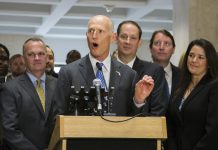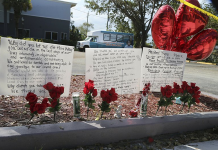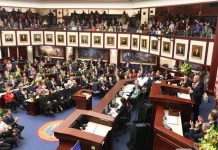MIAMI (AP) — A man who secretly recorded a meeting with a Florida police chief is celebrating victory in a federal case with free-speech and privacy implications.
Homestead’s police chief had invited James McDonough to a meeting in 2014 after the man complained about an officer who arrested him on minor charges that were later dismissed. A friend of McDonough’s and a detective also attended. McDonough used his cellphone to secretly record some of the discussion, and published some of it online.
Police Chief Alexander Rolle Jr. later said he didn’t know the conversation was being recorded, and the local state attorney sent McDonough a letter, warning that if he did it again, he’d be charged with violating a Florida law she said requires participants in private conversations to be notified and give consent before being recorded.
McDonough sued State Attorney Katherine Fernandez Rundle in Miami federal court, alleging that the threat of prosecution violated his First Amendment right to free speech.
The judge ruled that the warning didn’t violate his constitutional rights because it’s reasonable to prohibit recordings in police stations, given their law enforcement responsibilities.
Representing himself, McDonough took his case to an appeals court, which turned its attention to the wording of the state law.
An 11th Circuit of Appeals panel ruled 2-1 this week that the Florida law “does not apply to the recording of all oral communications,” and is “expressly limited to communications ‘uttered by a person exhibiting an expectation that such communication is not subject to interception.'”
Because the chief didn’t assert an expectation of privacy, the “government’s threatened prosecution has no basis in the law,” the ruling said.
“I still can’t believe I beat KFR,” McDonough told The Miami Herald . “I think the appeals court decision gives the right to citizens to record any public official as long as it is in the performance of their official duties.”
The Miami-Dade State Attorney’s Office declined to comment.














